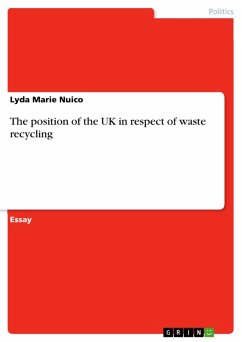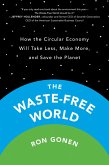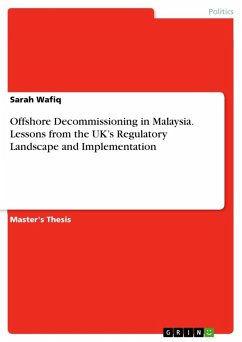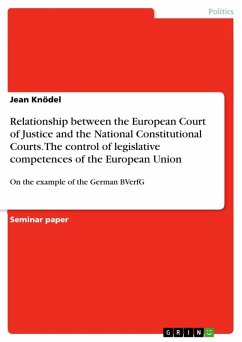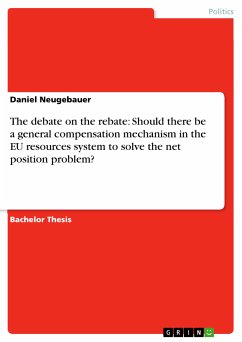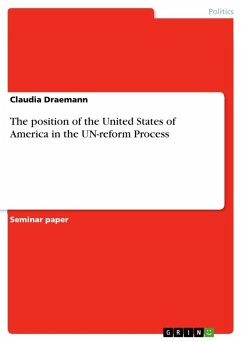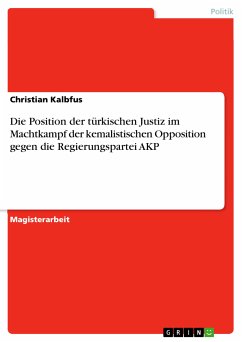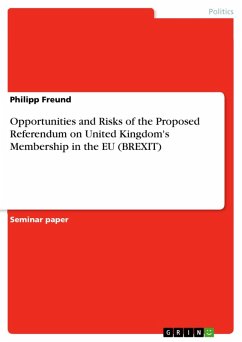Essay from the year 2016 in the subject Politics - Environmental Policy, , language: English, abstract: This paper lays out the current situation of the waste recycling efforts in UK with an aim geared towards the analysis of its current challenges and opportunities and what solutions can be implemented to improve UK's position in the European Union. In the natural world, nothing goes to waste. Waste is nonexistent. Every morsel of a fox's droppings is part and parcel of the intricate closed-loop system that is nature where the same could nourish a berry bush's growth thereby providing food for birds which will then eat those berries and ultimately, the bird will, at some point, becomes a meal for the fox. Hence, every waste produced by nature is simply a resource waiting to be utilized by another organism. In England, the household recycling rate has shown a considerable improvement since 2008 with an increase of 43% from 35%. In Wales, only 54% of its current municipal waste gets recycled. However, an online panel survey on trends in attitude and self-reported behavior conducted by the Waste Reduction Awards Program (WRAP) in 2011 revealed that 60% of residents in Wales claim that recycling is "very important" to them and even with the act requiring additional effort, 78% of people in Wales are shown to more likely recycle, a stark difference in comparison to its Scottish neighbor with only 51% of its populace labeling recycling as "very important." (Defra, 2013).
Dieser Download kann aus rechtlichen Gründen nur mit Rechnungsadresse in A, B, BG, CY, CZ, D, DK, EW, E, FIN, F, GR, HR, H, IRL, I, LT, L, LR, M, NL, PL, P, R, S, SLO, SK ausgeliefert werden.

